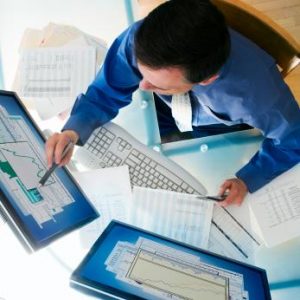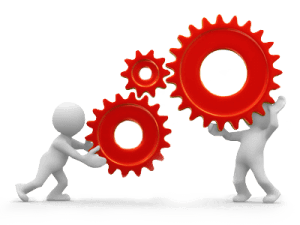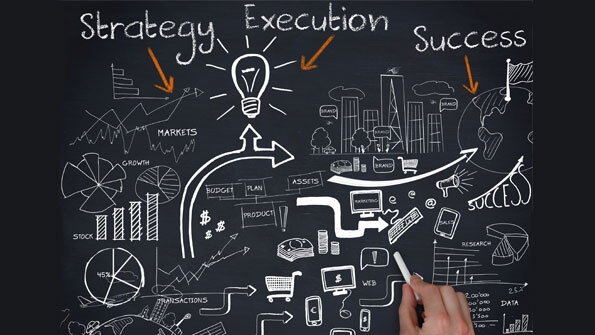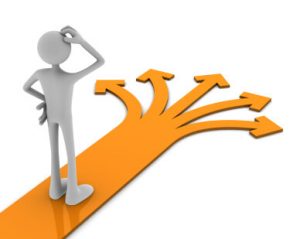Forex for beginners is the complete guide for all wannabe traders who are considering becoming a trader. While there are numerous ways to attain some forex education and learn how to trade forex online, the fact is not many of them are truly beneficial to the prospective trader. Sure, you may learn how to start forex trading from home, but this takes time, practice and some cash on the side. Here is how you can learn how to trade forex properly and get some forex trading training.
Table of Contents:
- Forex for Beginners Intro
- How and Where to Learn
- Selecting Your Trading Strategy
- Creating Forex Account and Picking a Broker
- Essential Forex Knowledge to Improve Your Trades
Forex for Beginners Intro
Forex for beginners usually starts with a very basic question: “How to start my forex career and how to trade?” Have no fear! This is what you have been looking for, offering you all there is to know about how to trade forex, for beginners or otherwise. We are only going to steer you in the right direction, tell you how and where you can find the information you are interested in. Also, we are going to discuss trading strategies in general and how to pick the one that is just right for you.
We are not here to make decisions in your stead; it is ultimately up to you whether you choose to follow our guidelines or not. There is a selection of books, training courses and experts in the field, but feel free to search for others on your own; this initiative will come in handy when you are no longer concerned with forex for beginners.
How and Where to Learn
For starters, you might want to get a book or two on forex for beginners or some similar topic. It could even be an eBook, if you are into these things. “Forex for Beginners” by James Stuart is getting some good feedback. But feel free to try out different books and texts on this subject. As long as they are free, there isn’t much you can lose, right? Here are some useful resources free of charge:
 The book covers the bare essentials of forex trading. It teaches you how to build a career in forex with nothing but a computer, an internet connection and some cash. Of course, things are not really that simple, but as far as forex manuals go, these two are pretty straightforward.
The book covers the bare essentials of forex trading. It teaches you how to build a career in forex with nothing but a computer, an internet connection and some cash. Of course, things are not really that simple, but as far as forex manuals go, these two are pretty straightforward.
It tells you about forex, teaches you how to make use of “Stop Loss” feature – as well as what Stop Loss actually is. In addition to risk management, some basic hedging strategies, trading strategies and the importance of technical analysis (link every piece).
Forex for beginners involves getting in touch with some experts in the field, such as Steve Burns, Rolf and Jon Boorman. There are many experts and “experts” on the subject of education in terms of forex trading, but these three are a great way to start. Their profiles on facebook, twitter or linkedin are a great way to keep appraised of the latest developments.
Rolf usually focuses on the educational part more than the others, so he might be the best one to start with. He focuses on the more practical aspects of forex for beginners. Basically, he focuses on teaching people how to trade forex, and how to begin their forex careers. Jon Boorman does his best to keep his followers appraised on latest news and developments, so his account is going to be full of news articles, clips etc. Finally, Burns is more, well-rounded forex guru. Try finding these guys on social networks, see what they are all about and make your own decision.
 Finally, you might want to consider taking some courses or even tutelage. There are many forex brokers that pay special attention to their newest clients and some are even dedicated to their education. There are even brokers who are dedicated to the emerging concept of social networks for online forex trading, such as e-Toro or Easy Forex. More importantly, there are dedicated trading academies.
Finally, you might want to consider taking some courses or even tutelage. There are many forex brokers that pay special attention to their newest clients and some are even dedicated to their education. There are even brokers who are dedicated to the emerging concept of social networks for online forex trading, such as e-Toro or Easy Forex. More importantly, there are dedicated trading academies.
The most important thing you need to watch out for when looking for these types of courses are scams. The more ‘benign’ ones will only take your money and not teach you anything useful, while other have far more nefarious purposes. Still, if you can see through false promises and exaggerated claims, you should be just fine. If possible, go for a certified one.
Selecting Your Trading Strategy
 No forex for beginners’ topic would be complete without the part where we talk about trading strategies and what makes them so special. The biggest difference in these strategies actually concerns the people who employ them. You see, no forex strategy can be more efficient than the trader using it. But most traders do not have the time to trade forex on a full-time basis, and most trading strategies rely on full commitment. This is why the biggest division between trading strategies is the amount of resources and time they require to properly execute. The best forex trading strategy is the one you are going to use, but other than that anything goes.
No forex for beginners’ topic would be complete without the part where we talk about trading strategies and what makes them so special. The biggest difference in these strategies actually concerns the people who employ them. You see, no forex strategy can be more efficient than the trader using it. But most traders do not have the time to trade forex on a full-time basis, and most trading strategies rely on full commitment. This is why the biggest division between trading strategies is the amount of resources and time they require to properly execute. The best forex trading strategy is the one you are going to use, but other than that anything goes.
Of course, the most time-efficient strategy would be to automatically copy other traders’ moves. This seems like taking the easy way out, mostly because it is. The path of least resistance has a certain allure that most forex traders nowadays find irresistible. It makes sense after all, it requires little to no knowledge on forex matters. You would not need to do any analysis of your own, follow the market trends or basically do anything other than set the parameters and count the money. Or so the story goes.
The real life, however, does not work that way. In real life, even the best forex traders lose, and when they lose, they lose big. Most importantly, when they lose, so do their followers. Because the fact you had no hand in the trade that transpired, does not absolve you from its financial consequences. If you still feel like trying it out, all you need is a sympathetic broker, some cash to get started and a lot of luck, because you are going to need it.

Those who prefer to do their own trading might want to focus on a strategy of their own. They typically focus on the currency pairs that are the most active at the time where the trader can afford to trade. For instance, if you cannot afford to trade during the day, and have only a window of a few hours available. It might be beneficial to focus on those currency pairs that trade the most during those hours. The problem is that some traders are unable to maintain any kind of schedule, even the one where they can only trade during the night.
If this is your case, you are going to have to focus on stop loss and price action trading because you can only afford to keep tabs on your trades every now and again. Either way, your computer is invaluable; by placing a stop loss, you can be sure that currency pairs will be offloaded before they do too much damage. Something like with the Fibonacci pivot strategy, for example.
The goal of the Fibonacci pivot strategy is to use Fibonacci retracement and the pivot levels in order to corner the profits. Most traders prefer to use daily pivot point, but weekly, monthly and yearly pivot points are also considered effective. Once the Fibonacci retracement levels start to work together with the pivot points, you can either wait for a confirmatory signal or decide to risk it. If you do not place a stop loss at least a level below the Fibonacci retracement level, the trade could turn ugly.
Creating Forex Account and Picking a Broker
Forex for beginners also includes a part on how to choose the right broker and all the peculiarities of this delicate process.

First of all, you need to make sure your broker is legit. There are numerous regulatory bodies that have their own areas of jurisdiction, but generally speaking, trading with a regulated broker is not quite the same as trading with an unregulated one. Regulated brokers typically feature higher costs of business and more red tape, whereas unregulated brokers could pose a direct threat to your finances if you are not careful.
 Basically, it is buyers beware. It all comes down to how reliable a broker is as well as the level of service that they provide. Some brokers offer a lot more bang for your buck than others. Others have been doing business for years while others have just popped up out of nowhere. Logically, you should go for the best regulated broker that you could find and if there is more than one that you like, go for the one with more experience. Beside their connections and higher likelihood they know what they are doing, they will also bring one additional benefit. If there is any unforeseen occurrence or something like that, an experienced broker is more likely to know how to deal with it, possibly saving you money in the process.
Basically, it is buyers beware. It all comes down to how reliable a broker is as well as the level of service that they provide. Some brokers offer a lot more bang for your buck than others. Others have been doing business for years while others have just popped up out of nowhere. Logically, you should go for the best regulated broker that you could find and if there is more than one that you like, go for the one with more experience. Beside their connections and higher likelihood they know what they are doing, they will also bring one additional benefit. If there is any unforeseen occurrence or something like that, an experienced broker is more likely to know how to deal with it, possibly saving you money in the process.
Of course, the registration process also varies depending on the amount of regulations the broker needs to adhere to as well as their own business policy. Generally speaking, the heavier the regulations, the more demanding the registration process will get. It should come as no surprise if a broker asks you for a copy of your photo ID and a number of other documents in order to prove your age, identity, profession and other details. They might even ask you for a copy of your credit card, although this usually trips a few red flags by itself. Especially if you do not plan to use a credit card to fund your trading account!
Once the account has been set up, you are ready to start your first trades. Of course, as a complete newbie, you have remembered to go through the demo account that most brokers usually supply. This helped you familiarize yourself with the basics of forex trading without risking any real money of your own, as well as the platform you are about to use. Of course, most platforms look alike and their general features are pretty common, but this does not mean you should assume you can sign up to any broker and immediately learn how to navigate their platform. Also, if there are additional options and services, such as charting, trading signals and the like, you might want to find out more about them as well. Do your analysis and good luck trading.
Essential Forex Knowledge to Improve Your Trades
Oh, and make sure you remember all those forex terms such as leverage, currency trading, pips, spreads etc. Forex for beginners guide illustrates crucial things you need to know are:
- Ask/Bid prices: The former is the lowest price that the buyers would accept at the moment, while the latter is the highest price a seller is offering at the time. The difference between the two is called spread.
- At the money: at current price rate
- Base currency: the currency in a pair that the operated results are reported in – its counterpart is the quote currency.
- Bull market: the market where the prices are rising; its opposite is called bear market.
- Day trading: it involves currency deals that repeat automatically every work day at 10 pm (GMT time). The only way to exit it is if you cancelled it yourself, or your stop loss was reached. Of course, you could also set it to end on a particular date if that is your plan.
- Forex/FX: abbreviation for “foreign exchange”
- Fundamentals: factors that influence the value of a currency, and are involved in a fundamental analysis. They include inflation, interest rates, government deficit, growth etc.
- Leverage: the rate of borrowed money you can use in a trade
- Margin Call: your broker wants more money in order to keep trading
- Pip: the smallest decimal in a price of a currency pair. Usually 0.0001 of a particular currency
- Stop Loss order: an instruction to close positions in order to limit the losses incurred
- Volatility: the extent to which the price will vary over a certain period
This was the selection of the most common terms. The rest can be found right here.
 Forex analysis can be fundamental or technical and it is unclear as to which one is better. The fundamental analysis relies on pretty much anything that might influence the value of a currency pair, including economy, politics and various other features. Technical analysis, on the other hand, tries to predict future price movement by analyzing past trades and performance in search for patterns that can be exploited. Neither have proven as too effective, but they are by far the closest thing to an educated guess that we have.
Forex analysis can be fundamental or technical and it is unclear as to which one is better. The fundamental analysis relies on pretty much anything that might influence the value of a currency pair, including economy, politics and various other features. Technical analysis, on the other hand, tries to predict future price movement by analyzing past trades and performance in search for patterns that can be exploited. Neither have proven as too effective, but they are by far the closest thing to an educated guess that we have.
Also, keep in mind that forex traders lose every now and then. In fact, it is not uncommon even for a highly successful forex trader to blow through their account from time to time. They plan ahead by limiting their exposure and holding reserves, so you might want to do the same. Start trading small and aim to earn at least 1% of your capital a day. And do try to reflect on your actions every now and then. The best forex traders were also reading some kind of forex for beginners tutorials and are the ones who learn from their mistakes, not the ones who never make any – because those do not exist.
So, you’ve finished reading this Forex for beginners guide. Although we deeply appreciate it, don’t kid yourself thinking this is it. This is the first step in a long journey. Walk before run! Here’s how you can make second step:

